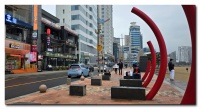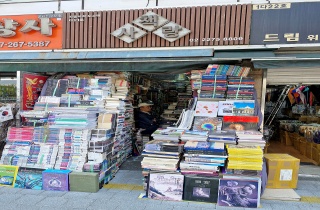SAR 423 Billion in Foreign Investments: Saudi Arabia Launches Offshore Securities Business License
RIYADH, Saudi Arabia,
) -- Over the past decade, the Saudi Capital Market Authority (CMA) has methodically advanced the Kingdom’s capital market reforms, gradually opening its financial markets to international investors. This transformation has attracted substantial global institutional interest, with foreign holdings reaching approximately SAR 423 billion by the end of 2024. The recent introduction of the Offshore Securities Business License underscores Saudi Arabia’s ambition to establish itself as a leading regional and global financial center.
The QFI program in 2015 was the first program to provide direct access into Saudi markets for foreign investors. Prior to the QFI program, foreign investors could only access Saudi equities through swap arrangements, once foreign institutions qualified as QFIs, the program created a direct way for foreign institutions to transact in the Saudi market, further expanding the overall market access.
Since then, the CMA has gradually dismantled many of the restrictions that once limited foreign participation. In 2018, asset thresholds for QFI eligibility were lowered, per-investor ownership caps were raised from 5 to 10 percent, and the pool of eligible investors was expanded.
Also, improvements to corporate governance, financial disclosure, and market infrastructure made Saudi Arabia’s capital market more transparent and credible. These reforms helped the Kingdom secure inclusion in the MSCI and FTSE Russell emerging market indices in 2019, a development that catalyzed massive capital inflows.
The impact was instant, QFI owned SAR 13.7 billion in Saudi market in 2018. That figure increased to SAR 134.48 billion in 2019, coinciding with index inclusion. By the end of 2024, foreign investors held about SAR 423 billion in equities—up from around SAR 86 billion just six years earlier.
Beyond these broad reforms, the CMA has continued to refine foreign access. In January 2025, it published a landmark rule change permitting foreign ownership in Saudi-listed companies that own real estate assets in the holy cities of Makkah and Madinah. Previously, such ownership was prohibited due to restrictions on property in the two cities. Under the new regulation, non-Saudi investors—whether individuals or institutions—can now own up to 49% jointly of shares or convertible debt in these companies.
The CMA also recently published a framework for a new offshore license, intended to allow financial institutions to conduct securities business through a regional headquarters. While still pending implementation, this initiative aims to position the Kingdom as a regional and global financial hub for securities.
This Offshore Securities Business License will enable licensed institutions to carry out securities activities, as well as manage investment funds that invest in securities within the Kingdom. These services may be provided to foreign clients outside the Kingdom, in addition to a specified category of local clients.
Additionally, the license will allow its holder to invest in the Saudi capital market without the need to meet the qualification requirements typically imposed on qualified foreign investors. In addition, this license will enable its holder the access to a broader client base, including transactions with sovereign investment funds such as the Public Investment Fund, which manages over SAR 3.5 trillion in assets in 2024, as well as pension funds within the Kingdom.
The offshore licensees and structure also present other benefits to developing and establishing private investment funds in Saudi Arabia. Offshore licensees will have flexible contractual terms as they will focus on addressing a complex and sophisticated investment needs.
Taken together, these reforms represent one of the most comprehensive efforts among emerging markets to integrate with global capital flows. The CMA’s approach—measured, regulatory-driven, and clearly aligned with Vision 2030—has generated confidence among international investors. While challenges remain, particularly in implementation and investor onboarding processes, the trajectory is clear. Saudi Arabia is building a market that not only attracts foreign capital, but retains it through stability, structure, and institutional trust. As the offshore licensing regime moves toward activation, it stands as the latest signal that the Kingdom’s financial sector is not just open—it is competing.
Contact:
Capital Market Authority
Communication & Investor Protection Division
+966114906009
+966557666932
Media@cma.org.sa
www.cma.org.sa
全球艺术平台 Global Art Platform #한국사진방송 #k-arts #韩国艺术 |








































